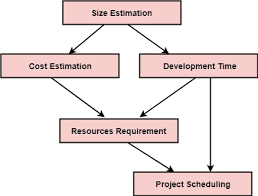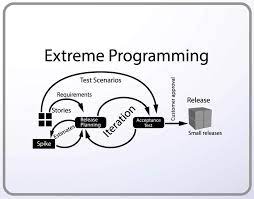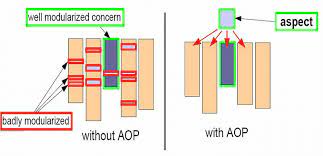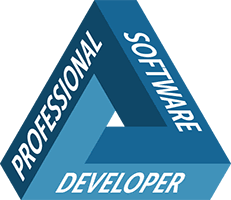Software Project Management in Software Engineering
Software project management plays a crucial role in the success of any software development endeavor. It involves planning, organizing, and controlling resources to ensure the timely delivery of high-quality software products. Effective project management in software engineering is essential to meet client requirements, manage risks, and maintain overall project efficiency.
One of the key aspects of software project management is defining clear project objectives and scope. This includes understanding client needs, identifying project constraints, and setting realistic goals. By establishing a well-defined scope at the beginning of the project, teams can effectively allocate resources and plan tasks accordingly.
To ensure smooth execution, software project managers need to develop comprehensive project plans. These plans outline the schedule, milestones, deliverables, and resource allocation for each phase of development. By breaking down the project into manageable tasks and setting realistic deadlines, teams can better track progress and identify potential bottlenecks.
Communication is another critical component of successful software project management. Regular communication among team members, stakeholders, and clients helps to manage expectations and keep everyone informed about progress or any changes that may arise during development. Effective communication channels such as meetings, status reports, or collaborative tools facilitate transparency and foster collaboration within the team.
Risk management is an integral part of software project management as well. Identifying potential risks early on allows teams to develop contingency plans or mitigation strategies to minimize their impact on the overall project timeline. Regular risk assessments throughout the development process help in proactively addressing challenges that may arise.
Furthermore, effective resource allocation is essential for efficient software project management. Project managers need to consider factors such as team size, skill sets required for specific tasks, availability of resources (hardware/software), and budget limitations while assigning responsibilities. Adequate resource planning ensures that tasks are completed within allocated timeframes without compromising quality.
Monitoring and controlling progress are crucial activities in software project management. Regularly tracking key performance indicators (KPIs) enables managers to assess the project’s health and identify areas that require attention. This includes monitoring development progress, tracking budget utilization, and ensuring adherence to quality standards. By closely monitoring these metrics, project managers can make informed decisions and take corrective actions if necessary.
Lastly, software project management also involves post-project activities such as conducting reviews or retrospectives. These activities provide an opportunity to evaluate the project’s success, identify lessons learned, and gather feedback for future improvements. By reflecting on the strengths and weaknesses of the project, teams can enhance their processes and deliver even better results in subsequent projects.
In conclusion, software project management is a critical discipline within software engineering that ensures successful delivery of software products. It involves careful planning, effective communication, risk management, resource allocation, monitoring progress, and continuous improvement. By employing robust project management practices throughout the development lifecycle, teams can enhance productivity, meet client expectations, and achieve overall project success.
8 Key Advantages of Software Project Management in Software Engineering
- Efficient resource allocation
- Clear project objectives
- Effective risk management
- Improved communication
- Timely delivery
- Enhanced quality control
- Increased client satisfaction
- Continuous improvement
Six Common Pitfalls in Software Project Management: Communication Breakdowns, Scope Creep, Impractical Timelines, Resource Shortfalls, Risk Oversight, and Stakeholder Detachment
- Lack of Clear Communication
- Scope Creep
- Unrealistic Deadlines
- Inadequate Resource Allocation
- Risk Mismanagement
- Lack of Stakeholder Engagement
Efficient resource allocation
Efficient resource allocation is a significant advantage of software project management in software engineering. By carefully managing resources, including team members, time, and budget, project managers can optimize productivity and ensure that project goals are met. Through proper planning and coordination, project managers allocate the right people with the necessary skills to specific tasks, ensuring that each team member’s expertise is utilized effectively. Additionally, they allocate sufficient time for each task while considering dependencies and critical path analysis to avoid delays. Moreover, by monitoring budget utilization closely, project managers can control costs and make informed decisions to keep the project on track. With efficient resource allocation, software projects can be executed smoothly and efficiently, leading to successful outcomes.
Clear project objectives
Clear project objectives are a fundamental pro of software project management in software engineering. By establishing clear objectives and scope at the outset, project managers ensure that all team members and stakeholders have a shared understanding of the desired outcomes. This clarity helps to align efforts and focus on achieving specific goals, preventing confusion or misunderstandings along the way. With well-defined objectives, teams can effectively plan tasks, allocate resources, and monitor progress to ensure that the project stays on track towards successful completion. Clear project objectives provide a solid foundation for efficient collaboration and enable everyone involved to work towards a common purpose.
Effective risk management
Effective risk management is a significant advantage of software project management in software engineering. By proactively identifying potential risks and developing strategies to address them, project managers can minimize the impact on project timelines and outcomes. This proactive approach allows teams to anticipate challenges, develop contingency plans, and allocate resources accordingly. By effectively managing risks, software projects can maintain their schedule, deliver high-quality results, and ensure client satisfaction.
Improved communication
Improved communication is a significant advantage of software project management in software engineering. By implementing project management practices, regular and effective communication channels are established among team members, stakeholders, and clients. This fosters collaboration and teamwork, ensuring that everyone is on the same page and working towards a common goal. Transparent communication allows for better understanding of project requirements, progress updates, and any changes that may occur during development. This alignment helps to prevent misunderstandings, reduces the risk of errors or delays, and ultimately leads to a more successful software development process.
Timely delivery
Timely delivery is a significant advantage of software project management in software engineering. With well-defined plans and schedules in place, project managers can effectively allocate resources, set realistic deadlines, and track progress. By closely monitoring the project’s timeline, teams can ensure that deliverables are completed on time without compromising quality or client expectations. This not only enhances client satisfaction but also helps in maintaining a positive reputation for the development team. Timely delivery is crucial in the fast-paced software industry where meeting deadlines is often a critical factor for success.
Enhanced quality control
Enhanced quality control is a significant advantage of software project management in software engineering. Through project management practices, such as monitoring progress and conducting regular reviews and inspections, teams can ensure that high-quality standards are maintained throughout the entire software development lifecycle. By closely monitoring the development process, identifying potential issues early on, and conducting thorough reviews, project managers can proactively address any quality concerns. This proactive approach helps to minimize errors, improve overall product quality, and deliver a software solution that meets or exceeds client expectations.
Increased client satisfaction
Increased client satisfaction is a significant advantage of software project management in software engineering. By actively involving clients in the planning process through effective communication channels, software project managers can better understand client requirements and keep them informed about progress regularly. This level of transparency and collaboration builds trust and confidence between the development team and the client. Clients feel more engaged and valued when they have visibility into the project’s progress, can provide feedback, and have their concerns addressed promptly. Ultimately, this leads to higher client satisfaction levels as their needs are met more effectively throughout the software development lifecycle.
Continuous improvement
Continuous improvement is a significant advantage of software project management in software engineering. Through post-project activities like retrospectives, teams have the opportunity to reflect on their performance, analyze strengths and weaknesses, and identify areas for improvement or lessons learned from previous projects. This valuable feedback allows teams to continuously enhance their processes and practices, ensuring that future endeavors in software engineering are more efficient and successful. By embracing a culture of continuous improvement, software project management enables teams to evolve and adapt to changing industry trends and deliver even better results with each new project.
Lack of Clear Communication
Lack of Clear Communication: Ineffective communication among team members and stakeholders can lead to misunderstandings, delays, and misalignment of project goals. Clear and open communication is crucial for successful software project management. When there is a lack of clear communication, important information may be missed or misunderstood, leading to errors or rework. It becomes challenging to coordinate tasks, share progress updates, and address concerns promptly. Additionally, miscommunication can result in conflicting priorities and expectations among team members and stakeholders, causing delays in decision-making and ultimately impacting the project timeline. To mitigate this con, it is essential for project managers to establish effective communication channels, encourage regular updates from team members, and promote a culture of transparency and collaboration throughout the software development process.
Scope Creep
One significant con of software project management in software engineering is scope creep. When the project scope is poorly defined or requirements constantly change, there is a risk of scope creep. This occurs when additional features or functionalities are added without proper evaluation of their impact on the timeline and resources. Scope creep can lead to delays, increased costs, and compromised quality as the project team tries to accommodate these changes within the original plan. It is crucial for project managers to effectively manage scope by clearly defining and controlling project boundaries to avoid scope creep and ensure successful project delivery.
Unrealistic Deadlines
Unrealistic deadlines in software project management pose a significant challenge. When deadlines are set without considering the complexity of tasks or resource constraints, it puts undue pressure on the development team. This can have detrimental effects on the overall project, such as compromised quality or missed deadlines. Unrealistic timeframes often result in rushed development, which may lead to bugs, errors, and incomplete features. Moreover, it can cause burnout among team members who are forced to work long hours to meet unattainable goals. To ensure successful project delivery, it is crucial for software project managers to set realistic deadlines that take into account the intricacies of tasks and available resources.
Inadequate Resource Allocation
Inadequate resource allocation is a significant con of software project management in software engineering. Insufficient allocation of resources, whether it be human resources, hardware, or software tools, can hinder progress and limit the team’s ability to meet project objectives efficiently. When there is a lack of skilled team members or an inadequate number of team members assigned to specific tasks, it can lead to delays in development and increased workload on individuals. Similarly, not having access to the necessary hardware or software tools required for the project can impede productivity and hinder the team’s ability to deliver high-quality results. Therefore, ensuring proper resource allocation is crucial for successful software project management as it directly impacts the overall efficiency and outcome of the project.
Risk Mismanagement
One significant con of software project management in software engineering is risk mismanagement. When project managers neglect the crucial step of risk assessment and fail to implement effective mitigation strategies, it can lead to unforeseen challenges that significantly impact project timelines and deliverables. By not proactively addressing risks, the likelihood of project failures increases. Ignoring or underestimating potential risks can result in delays, budget overruns, compromised quality, or even complete project derailment. Therefore, it is vital for project managers to prioritize risk management and take necessary precautions to mitigate potential risks throughout the software development process.
Lack of Stakeholder Engagement
One significant con of software project management in software engineering is the lack of stakeholder engagement. When stakeholders, such as clients or end-users, are not actively involved or provide limited feedback throughout the project lifecycle, it can result in misaligned expectations and dissatisfaction with the final product. Engaging stakeholders early on is crucial for successful software project management as it allows for a better understanding of their needs, preferences, and requirements. By actively involving stakeholders, project managers can ensure that the software product meets their expectations and delivers the desired outcomes.




